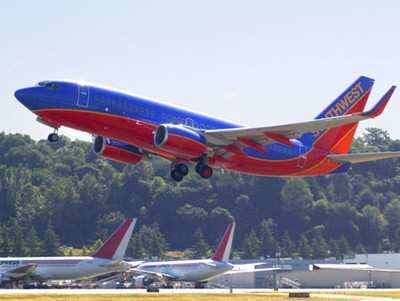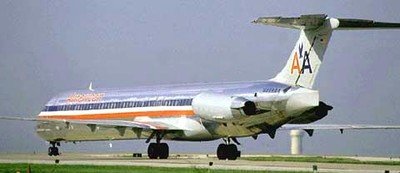Congressman Led Crackdown On FAA Inspection Process
 Minnesota Congressman
James Oberstar has led the charge against the Federal Aviation
Administration, calling on the agency to more strictly regulate its
own procedures governing the oversight of US domestic carriers. His
name also is synonymous with recent FAA action -- some would say
overreaction -- concerning those airlines' compliance with safety
procedures and inspections, which resulted in thousands of flight
cancellations over the past month.
Minnesota Congressman
James Oberstar has led the charge against the Federal Aviation
Administration, calling on the agency to more strictly regulate its
own procedures governing the oversight of US domestic carriers. His
name also is synonymous with recent FAA action -- some would say
overreaction -- concerning those airlines' compliance with safety
procedures and inspections, which resulted in thousands of flight
cancellations over the past month.
And, judging from Oberstar's comments in a recent interview with
Newsweek, he'd do it again in a heartbeat. Oberstar -- who serves
as chairman of the House Committee on Transportation and
Infrastructure -- says he has no regrets about forcing the FAA to
take a close look at airline safety, even when that has resulted in
cancellations at carriers including Southwest, Delta, and most
recently, American.
"Safety should always be valued first [over convenience],"
Oberstar said. "In the years before September 11, aircraft were
routinely pulled out of service for different checks. That's one of
the reasons the airlines had extra aircraft to bring into service
while others were undergoing a D-check, which is an entire
maintenance overhaul. So airlines knew they had to have airlines in
reserve to cover their responsibilities to air travelers.
"But after September 11, the domestic airlines retired some 20
percent of their fleet. And then the period of bankruptcy took even
more aircraft out of service. So their margin of capacity is very
thin. Their load factor is very high, their yield is very high. But
when they have to conduct maintenance that means sometimes having
to pull aircraft out of service. That is a fleet management issue
for the airlines."
Oberstar acknowledged his office first received word last
summer, from an FAA whistleblower, about skipped inspections for fuselage
fatigue and rudder operation at Southwest Airlines.
"He said that there were airlines flying well beyond the dates
established under the Airworthiness Directive [a notice sent to
plane operators by the FAA about proper functioning and maintenance
of equipment]," Oberstar says. "He told us he had not only been
rebuffed but also told to keep his mouth shut.

"...He brought information and I reviewed it with staff, and I
asked for further documentation," the lawmaker continued. "I asked
for very meticulous information on every issue raised by at first
one, but as it turned out five courageous whistle blowers. It took
us months to evaluate all the claims and gather documentation to
back it all up. Earlier this year, we were ready to go ahead."
Disconcertingly, Oberstar believes commercial airline passengers
haven't seen the end of flight cancellations, stemming from
checks airlines failed to perform in a timely manner.
"I think this will go on for a while as airlines realign
themselves and the FAA adjusts its attitude to be rigorous with the
airlines and not partners with them, not treating them as
customers," Oberstar said. "I think we can expect more aircraft
being pulled out of service because they weren't inspected when
they should have been... [airlines] have to do a vastly better job
of scheduling their aircraft for maintenance so that work can be
done without inconveniencing the traveling public.

"It's now reached a crisis point beyond the inspection dates
that they've had to take large numbers of aircraft out of service
in order to conduct the inspections that should have been done on a
routine basis," Oberstar concluded.
 ANN's Daily Aero-Linx (04.15.24)
ANN's Daily Aero-Linx (04.15.24) Classic Aero-TV: 'No Other Options' -- The Israeli Air Force's Danny Shapira
Classic Aero-TV: 'No Other Options' -- The Israeli Air Force's Danny Shapira Aero-News: Quote of the Day (04.15.24)
Aero-News: Quote of the Day (04.15.24) Airborne 04.16.24: RV Update, Affordable Flying Expo, Diamond Lil
Airborne 04.16.24: RV Update, Affordable Flying Expo, Diamond Lil ANN's Daily Aero-Term (04.16.24): Chart Supplement US
ANN's Daily Aero-Term (04.16.24): Chart Supplement US





